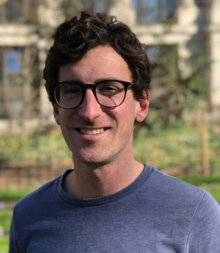06 Feb
2025
Kiel-CEPR Research Seminar
Turning Straw into Gold: New productive factors and innovation under contested property rights
12:00
–
13:00
Noam Yuchtman (University of Oxford)

Speaker: Noam Yuchtman, Universtiy of Oxford
Location: online or at Kiel Institute for the World Economy, Chausseestraße 111, 10115 Berlin
Organizers: Kiel Institute for the World Economy, CEPR
Registration: Please sign up to receive the newsletter and zoom links for the seminar. If you plan to attend in person, please let us know here beforehand.
Abstract: Economists typically study innovations that transform existing factors of production in a novel way, thus increasing productivity, quality, or product variety. Yet, some groundbreaking innovations are different: they create a novel factor of production from an overlooked, unowned or unreachable resource. In contrast with existing factors, property rights over novel factors are inevitably poorly defined prior to the innovation that creates them and can become contested afterwards. Property rights can be defined in two ways: first, the innovator might contract with counterparties (stakeholders or the state) prior to innovating; second, the innovator and counterparties might resolve property rights through an uncertain process of litigation and regulation ex post. From the innovator’s perspective, contracting has the benefit of being “safe”, but inevitably reveals information that strengthens the bargaining position of the counterparty. Resolving property rights through ex post contestation can yield extraordinary rents (if the innovator is assigned property rights) but also risks loss of the input entirely. We model the innovator’s choice between the risky gamble of contestation and the safe option of contracting, showing that contestation of property rights is more likely with ground-breaking innovations. We illustrate the mechanisms and implications of the model in a set of historical and contemporary cases.
Timothy Meyer
Timothy.Meyer@ifw-kiel.de
Johannes Binder
Johannes.Binder@ifw-kiel.de

